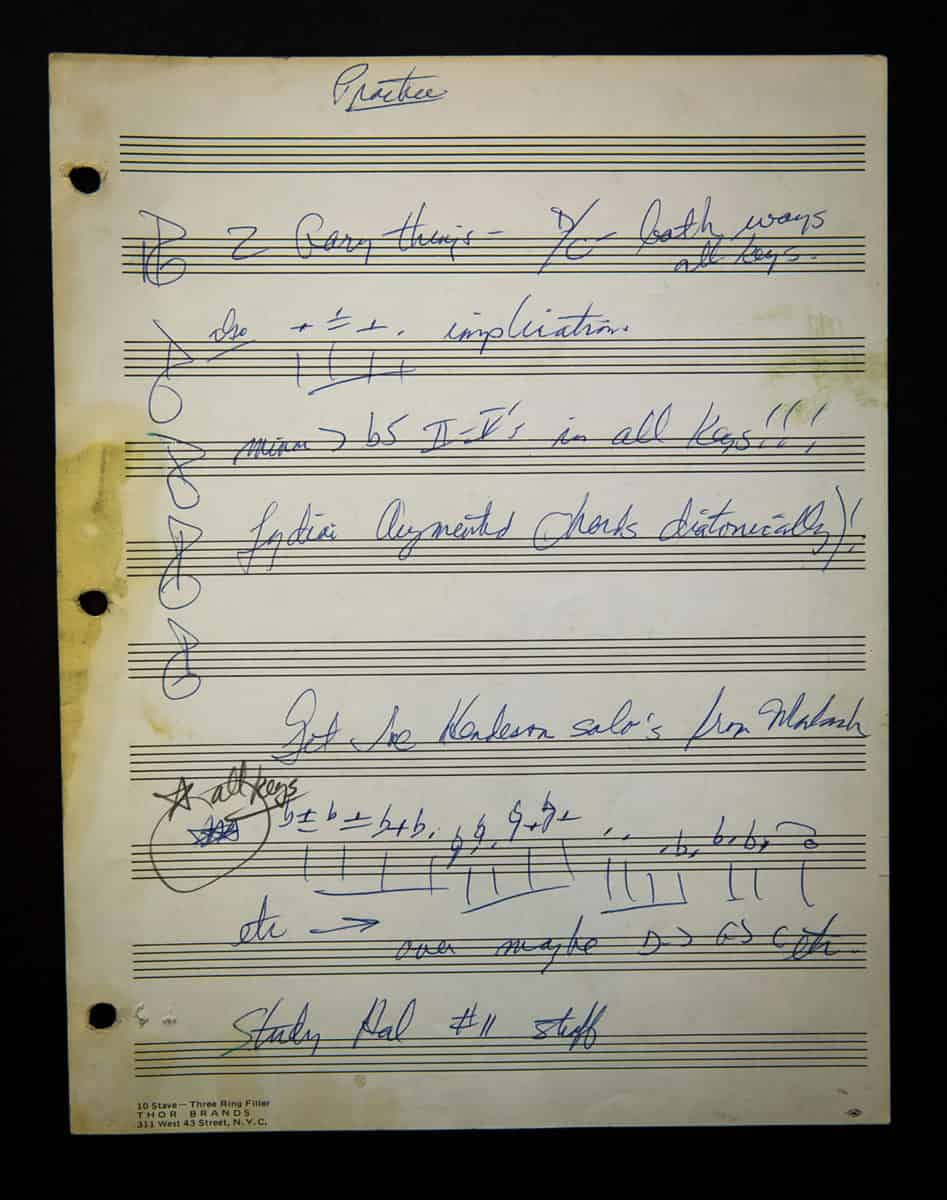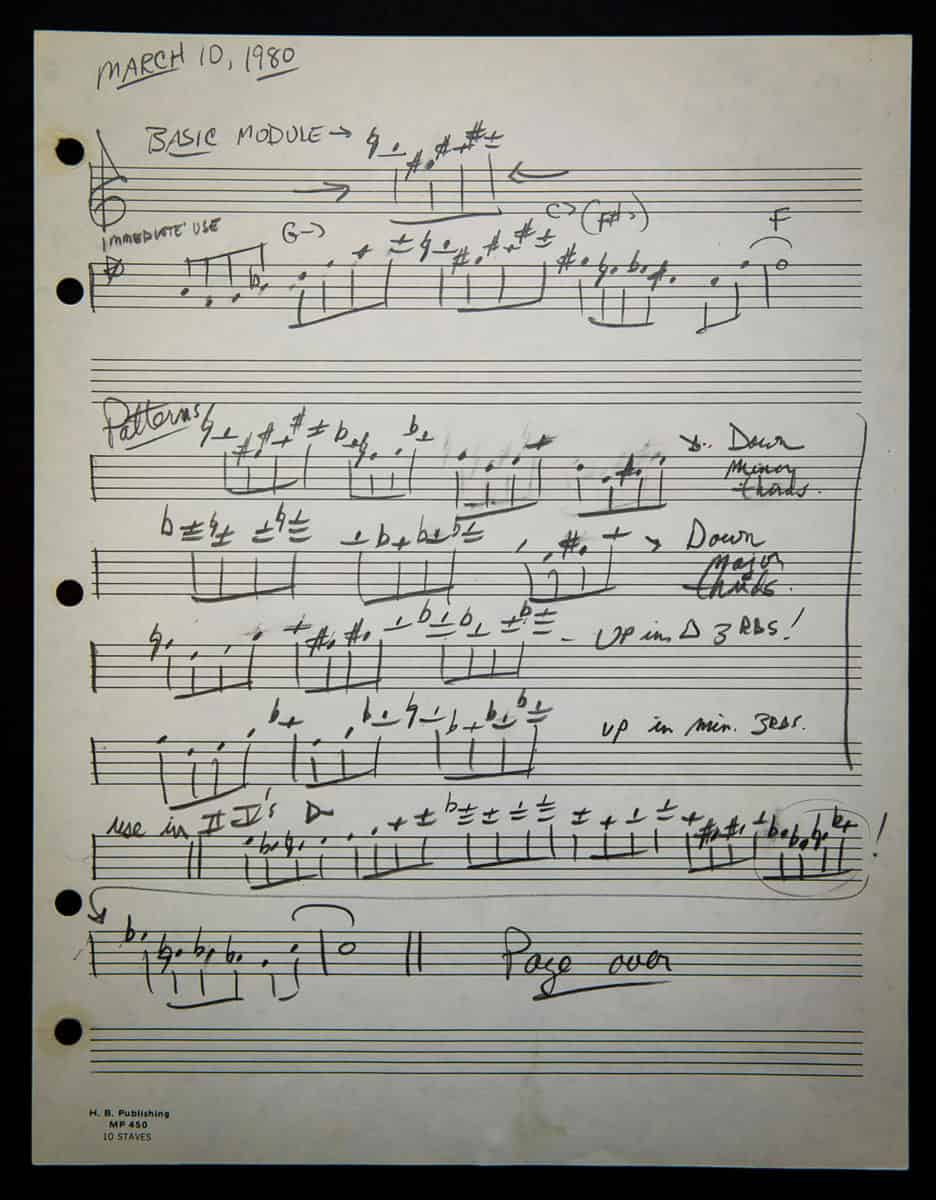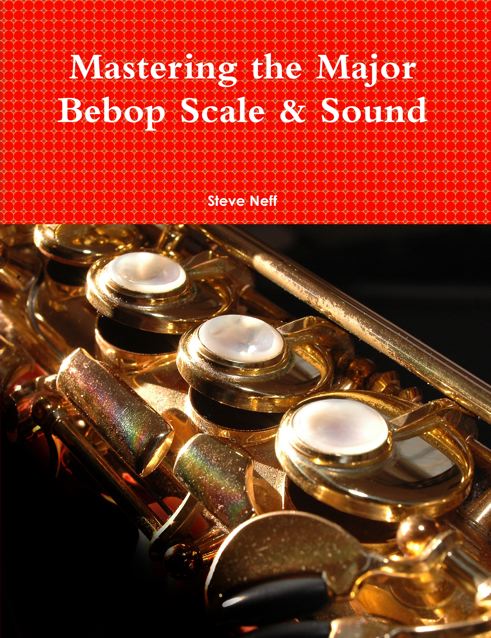Dr. David Demsey at William Paterson University contacted me a few years ago to tell me about the “Living Jazz Archives” that the University was building and how they were adding a Michael Brecker Archive to the already existing archives that they already had. The Living Jazz Archives are:
A TEACHING TOOL for William Paterson University Jazz Studies majors, for classes in other academic areas across campus, and for visiting groups of students of all ages from public schools, from other colleges and universities, and the general public.
A RESEARCH CENTER for professional scholars, authors and researchers and for faculty from other institutions.
A MINI-MUSEUM honoring the lives and careers of these great jazz artists and their important contribution to the history of jazz, by displaying their music, artifacts and memorabilia using audio, video and multi-media.
AN ARCHIVE, containing the archived collections of Clark Terry, Thad Jones, James Williams, Michael Brecker, Mulgrew Miller and other collections, maintaining and preserving those materials in perpetuity.
Michael Brecker Photo from Archive
Here is some information from Dr. David Demsey about his relationship with Michael Brecker as well as some of the materials the archive contains:
“I knew Mike (proud to say) for 30 years. We were both Joe Allard students, he finished his study before I started with Joe in the late 70s, but Joe introduced the two of us. Mike was always so supportive, had such thoughtful answers to my then naive questions about improvising, studying, etc.
We first met when I was a masters student at Juilliard. When I proudly told him how many of his solos I’d transcribed, he said, “Thanks, but stop doing that.” I was shocked – had I offended him? He said that although he appreciated the effort, “If you listen to me, you’ll just become another guy attempting to sound like me; but if you listen to who I listened to, you become my peer.” That’s some very heavy advice that I’ve passed on to my students for decades now, along with numerous other gems from Mike. One of my favorites: “Worry about your time, not notes. A wrong note only lasts an instant, but bad time goes on all night long!” Hah! Anyone who knew Mike loved his dry, sometimes silly sense of self-deprecating humor.
I kept in touch with Mike while I was at University of Maine Augusta for 12 years, bringing up Steps Ahead, Mike himself, and actually presenting his first-ever concert as a leader in March 1987 when his first album came out.
Once I moved to NYC area in 1992, I was looking forward to seeing him more and that was true, but I now regret that I didn’t keep in closer touch – who knew that we’d lose him so young? In January, he’ll have been gone twelve years already.
Michael Brecker Photo from Archive
And that’s the reason for the archive. It’s amazing and sad to realize that, in order to have heard Mike Brecker live (he stopped touring regularly in ’05), a young student would have to be at least in their late twenties, and that’s if they were hip enough at age 15-16 to go hear him. Nobody who’s at college age (18-22) would have ever heard him live. That legacy of his amazing energy, his huge technical command, and his harmonic genius has to be preserved and communicated to these students, many of whom might write him off as merely a “pop player.” Wrong!
Michael Brecker 80/81 with Pat Metheny
We have Randy Brecker here as a guest quite often in our program at William Paterson. On one visit, Randy asked to see Clark Terry’s Archive (we also have the collections of Clark, Thad Jones, James Williams, and Don Sebesky and Jim McNeely, with more planned). Clark was a major mentor for Randy, gave him a lot of his first NYC gigs when he moved here after his college study. When Randy saw the Living Jazz Archives, and learned about our educational mission, he said he really hoped that Mike’s collection could be here. I said, “Don’t say that unless you mean it!” It was a dream at that time.
Sheet from Brecker’s Practice Journal
When Mike’s wonderful wife Susan spent a day with us and saw how much we are dedicated to that mission, she was convinced that this is the best route. I will always be grateful she made that choice, and hope we can live up to that trust.
Sheet from Brecker’s Practice Journal
The Michael Brecker Archive is now a bit over two years old, adding new material all the time, thanks to Susan’s wonderful energy. We first prioritized the music (paper and recordings); we have 16 archival boxes of all of the original sheet music parts from the recording sessions of all of the Brecker solo albums, the “early” and “later” editions of the Brecker Brothers, from Steps Ahead, score and parts from the Claus Ogerman Cityscape album, from his tours and projects with McCoy, Elvin, Pat Metheny, Paul Simon, and many others. Every object in the collection is catalogued, so a visit to the website will list exactly what is here. The archive contains:
- All of Mike’s sheet music, including the original parts from all of his solo albums, from the Brecker Brothers (both original and later editions), Steps/Steps Ahead, and from other projects with Herbie, Elvin, Chick Three Quartets, Charlie Haden, Odeon Pope, Saxophone Summit, the Claus Ogerman Cityscape score and parts, and more – 26 archival boxes in all; -1200 cassette tapes (most still to be dubbed, working on that grant) from throughout his career, including rehearsal tapes, outtakes, etc.
- 200 CDs worth of live gigs
- about 300 LPs and CDs, including all of the releases under his name, and many dozens of sideman recordings, both jazz and commercial
- We also have Mike’s collection of about 800 cassettes, mostly featuring him. These include early Brecker Bros. rehearsal and gig tapes, live performances with Horace Silver, Hal Galper, and before, several NYC loft jam sessions, progressing on through to outtakes and work tapes (and, later, CDs) with rough album mixes for his solo albums and the Quindectet. These are being slowly and carefully digitized, and are well cared for.
- magazine cover stories, including a lot of rare Japanese jazz magazines
- tour programs and itineraries, letters, business contracts, Seventh Avenue South legal papers
- Most stunning are the nine practice notebooks…wow. Somewhere around 1000 pages of practice notes, to-do lists, transcribed solos and other materials, from as early as Brecker’s time as an Indiana University student, and as late as the notebook of production notes for the Pilgrimage sessions. I am working with Susan and a publisher to bring “the best of” these notebooks to publication – more news on that soon!
Sheet from Brecker’s Practice Journal
- The latest big news: equipment! THREE EWI’s, including the original prototype, a second model that is new to me, and the final model that places hands side by side.
- Six mouthpieces, including four old Otto Links, a performance Guardala, and an early 80’s Dukoff; reeds and reed care equipment; and, although the family understandably wants to keep Mike’s horn (he played the same Mark VI for nearly his entire career), we are this week doing a “photo shoot” with that horn, so everyone can virtually hold it in their hands, see all of the details, customization, serial numbers, etc.
Skunk Funk Sheet Music from Archive
All of these complete catalogs of the above items will be listed on the website, so people know exactly what is here, piece by piece. A lot of the music, of course, cannot be put online because of copyright restrictions – but it’s safe and available for study. Who knows, maybe Susan and I can work together to get some of it published.
If you will be visiting the New York area, please consider this a personal invitation to come to the Living Jazz Archives for a visit! We are located about 18 miles west of Manhattan. I’d be happy to give you a tour and an in-depth looking/listening session!“
Dr. David Demsey
Coordinator of Jazz Studies
Professor of Music
Curator, Living Jazz Archives
William Paterson University
The Michael Brecker Archive materials can be found at www.michaelbreckerarchive.org. The archive is open to the public but you have to make an appointment to see it. You can contact Dr. David Demsey at DemseyD@wpunj.edu to make an appointment. There is no cost to see the archive although they always welcome donations for the upkeep and care of the archive if you would like to donate.
I personally want to thank Susan Brecker, Randy Brecker, Dr. David Demsey, William Paterson University and all those who are contributing to this effort. I can’t wait to visit the archive myself but my fear is that I would be in there for two weeks straight with no shower listening manically to every cassette tape and scouring every practice journal page for hidden secrets. Dr. Demsey would have to call security to get me out of there!
Lastly, thanks to Michael Brecker who left such a rich and vibrant legacy for all of us. His music has of course touched many of us deeply but the countless stories of his gentle humble spirit that gave to all those around him has also had such a deep impact on all of us.
I met him once after a concert and shook his hand. Although he was obviously exhausted, he looked me in the eyes and smiled. I don’t remember what we talked about, but I remember feeling a thankfulness in my heart that one of my idols cared enough to look me in the eyes, talk to me, smile and encourage me. That meant the world to me and still does to this day……. We miss you Michael Brecker!










So great to hear of this endeavor! I had the honor of sitting next to Michael for four days in Saratoga Springs NY as a member of the very first American Song Festival Orchestra (1974). He was a superb person and musician!
Hope to come and see this archive sometime!
I remember talking to Michael about GPS on a Palm Pilot. And then I think we talked about EWI. Wish we had a day to just hang out…..
I too shook his hand after a concert, to tell him how much I enjoyed the performance. I’ll always remember the slightly confused, “Who the hell are you?” expression on his face 🙂
Steve, this is a really beautiful post. I love the message from Dr. Demsey about his background with Brecker and in particular the age-old “don’t transcribe me, listen to who I listen to!” anecdote. His note about how college kids today wouldn’t have been old enough to hear him play live, or at least they wouldn’t have been old enough to appreciate it, hit me, too. I was very lucky to be a freshman at North Texas when Neil Slater brought both Michael and Randy in for a whole week of clinics and a concert, and I was already a young Brecker worshiper by then. The thing that stuck with me the most about that whole week was how damn COOL Michael was — not, like, too cool for us, but the kind of warm, happy, kind, positive, supportive, loving person that we should all aspire to be. His unbelievable skill was secondary to his extremely admirable spirit. He was really a hero worth looking up to, and I honestly cried the day he died. He is literally the only celebrity whose death caused that reaction to me, I usually have very little attachment to people I don’t actually know in real life. (Although I’ll admit that Robin Williams came close.)
I just moved away from NYC but I’ll be back regularly to visit in-laws and friends, so we’ll have to make a trip up to Paterson sometime to see that archive. Thank you for making this post!
I recently moved to the NYC area (from Detroit), and actually live less than 5 miles from William Patterson (well, that’s ONE benefit from not being able to afford to live in Manhattan or Brooklyn…), so I’ll be sure to make the trip; thanks for the info! I met Mike about six times. The first was in Detroit in about 1984. We ended up hanging out all night, and I took him to see the best local alto cat, the late Larry Nozero. Mike was apparently really impressed with Larry’s playing, and commented to me after one really cool moment: “did he really just do that?” in obvious admiration. I too cried my ass off the day Mike died, staring in bewilderment at a photo of the two of us. I attended his repast in NYC – only my second visit there at the time. I unsuccessfully tried to get a donor group going at the Jewish Community Center in West Bloomfield, Michigan (where I grew up).